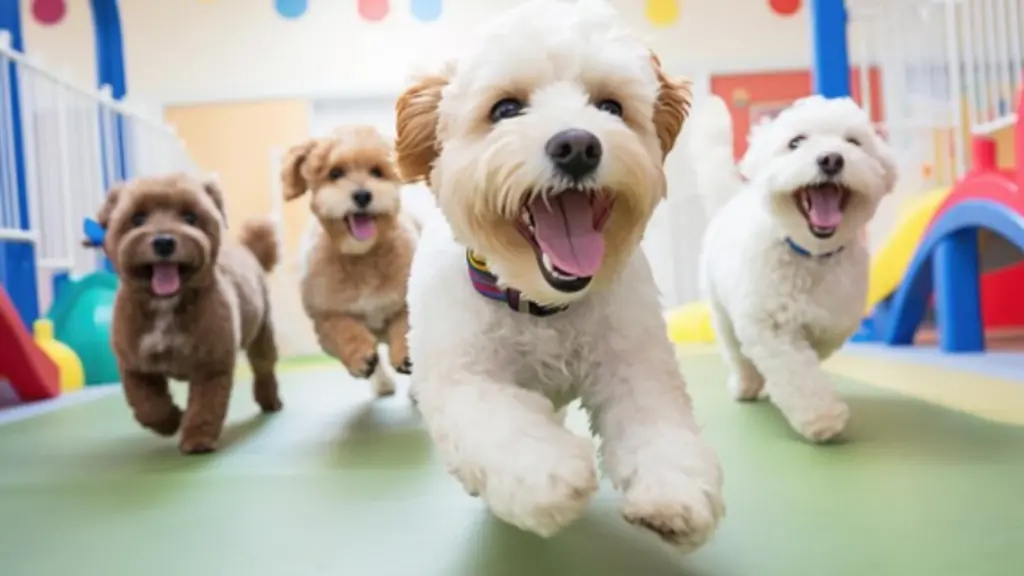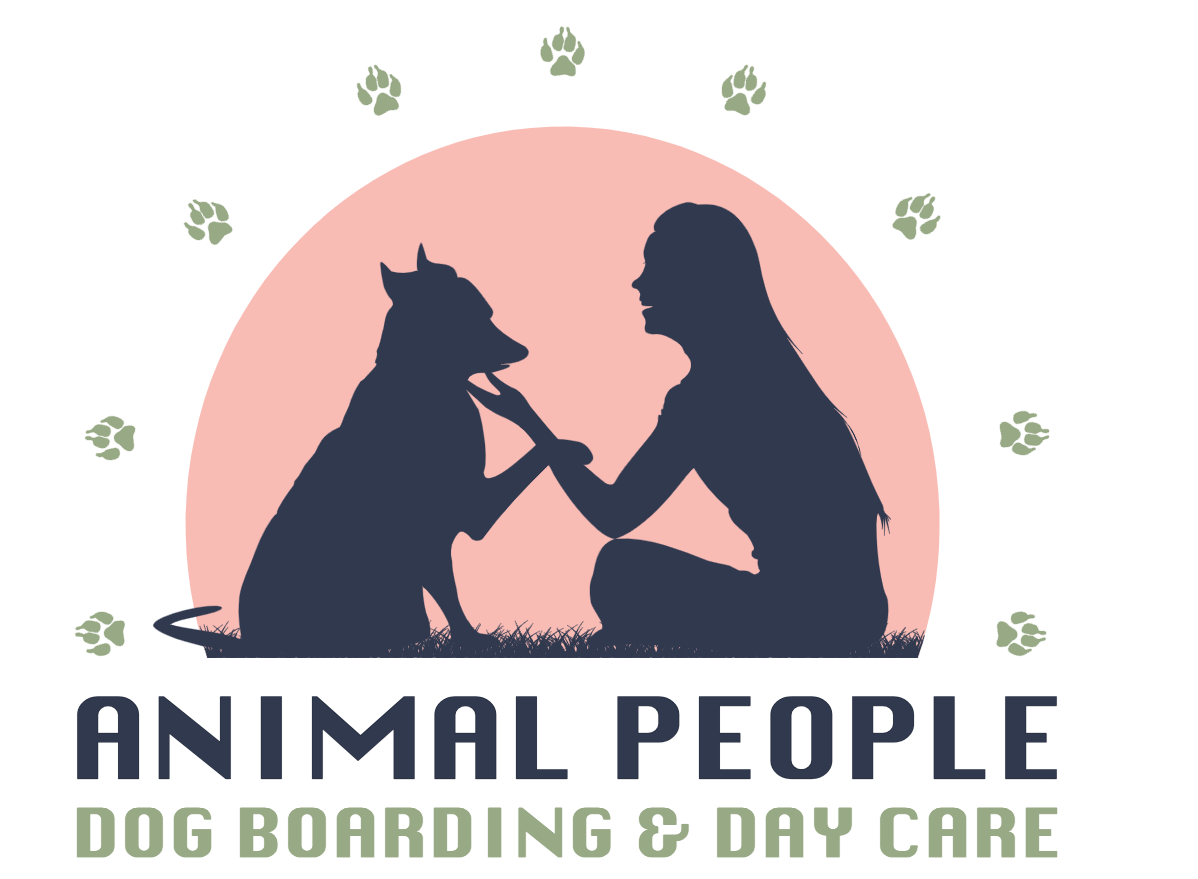What Your Dog’s Behavior at Daycare Reveals About Their Personality

Your dog’s behavior at daycare says a lot about their personality. Whether they’re the life of the party or prefer to keep to themselves, how your dog interacts with others can reveal some key traits about their character.
Some dogs are social butterflies, easily making friends, while others may be more cautious, taking their time to warm up. These behaviors can tell you whether your dog is outgoing, shy, dominant, or even a little anxious.
Understanding these traits can help you provide the right care and environment for your furry friend, making sure they feel comfortable and happy.
How can a dog’s behavior at daycare indicate their personality traits?
A dog’s behavior at daycare can provide valuable insights into their personality traits, as dogs often express themselves through their interactions with people, other dogs, and the environment. Here are a few key behaviors and what they can reveal:
- Social and Playful: If your dog eagerly engages in play with other dogs and interacts confidently with staff members, it indicates that it is social, outgoing, and enjoys the company of others. These dogs are typically friendly, adaptable, and enjoy new experiences.
- Shy or Withdrawn: Dogs that hang back, avoid interaction, or take longer to adjust to new situations may be more reserved, cautious, or independent. This could also indicate social anxiety or a preference for familiar environments, as they may need more time to warm up to new experiences or individuals.
- Aggressive or Territorial: Dogs that show signs of aggression, such as growling or snapping, may have territorial tendencies or struggle with resource guarding. This behavior can indicate they are protective, dominant, or insecure in unfamiliar surroundings.
- Calm and Relaxed: A dog that remains calm in a busy daycare setting, interacts gently with others, and handles noise or chaos well may be confident, balanced, and comfortable in various situations.
By observing how your dog behaves at daycare, you can better understand its personality, emotional needs, and comfort levels in social settings. This information can help you tailor your dog’s activities, training, and care to suit its temperament.
What does it mean if a dog is shy or reserved at daycare?
Dogs who are shy or reserved at daycare are typically more cautious or independent in new or unfamiliar environments. This behavior can indicate a variety of personality traits and emotional responses:
- Social Anxiety: Shy dogs may experience anxiety in social situations, particularly around unfamiliar people or other dogs. They might feel overwhelmed or insecure in a busy daycare setting, which leads them to withdraw or observe rather than actively engage.
- Need for More Time to Adjust: Some dogs are naturally more introverted and need extra time to warm up to new situations. These dogs may prefer to watch the activities first and gradually join in once they feel more comfortable. This doesn’t necessarily mean they are fearful but are cautious and prefer a slower pace.
- Sensitivity to Environment: A reserved dog may also be sensitive to loud noises, new smells, or the presence of many other dogs. They may feel more at ease in a quieter or less stimulating environment, preferring a smaller group or a more controlled interaction.
- Bonding with a Familiar Person: Shy dogs may form strong attachments to specific people, feeling more comfortable when those individuals are present. In daycare, this behavior can manifest as the dog staying near a familiar staff member or only engaging with a small group of dogs they trust.
Understanding that a dog’s shyness often reflects their need for a familiar, less overwhelming environment can help daycare staff provide the right support to build confidence gradually. Over time, with positive reinforcement and gentle encouragement, many shy dogs can become more comfortable and enjoy socializing in daycare.
How does social behavior at daycare reflect a dog’s confidence level?
A dog’s social behavior at daycare can strongly indicate their confidence level. How dogs interact with other dogs and people in a daycare setting reveals key aspects of their personality and emotional state. Here’s how different behaviors can reflect their confidence:
- Outgoing and Playful: Dogs eager to join group activities, engage with other dogs, and approach staff members are typically confident. These dogs are comfortable in new environments, exhibit positive social interactions, and enjoy the stimulation of new experiences. They are more likely to adapt quickly to different situations and thrive in social settings.
- Curious but Cautious: Dogs that show interest in socializing but are slower to approach or need time to warm up may have a balanced confidence level. These dogs are curious but prefer to take things at their own pace. Their behavior reflects a healthy mix of caution and confidence, and they may gradually open up as they become familiar with their surroundings.
- Reserved or Withdrawn: Dogs that stay on the sidelines or prefer to observe rather than participate may have lower confidence in social situations. These dogs might feel insecure in the daycare environment and need more time to build trust. Their reserved behavior could be due to past experiences or a naturally shy personality. It’s important to provide a safe, gradual introduction to social interactions for these dogs to help boost their confidence over time.
- Aggressive or Overly Dominant: Dogs that show signs of aggression, such as growling, snapping, or trying to control interactions with other dogs, may display fear-based confidence or territorial behavior. These dogs often lack social confidence and may react defensively when threatened. While it may seem like dominance, it often reflects insecurity or discomfort in social situations.
A dog’s social behavior at daycare provides valuable insights into its confidence level. Outgoing dogs are likely confident, while shy or withdrawn dogs may require more time and positive reinforcement to feel comfortable in group settings.
Understanding these behaviors allows daycare staff to tailor their approach, ensuring each dog feels safe and supported in its environment.
Can a dog’s play style at daycare reveal their energy and temperament?
Yes, a dog’s play style at daycare can provide valuable insights into their energy level and temperament. Here’s how their play behavior reflects these traits:
- High Energy Play: Dogs that engage in vigorous play, chase games, or interact actively with other dogs tend to have high energy and are usually outgoing. They enjoy physical activity and thrive in environments where they can burn off energy.
- Gentle Play: Dogs that engage in calm, gentle play or enjoy playing with toys independently may have a more relaxed temperament. They’re often social but prefer slower-paced activities and might have a more moderate energy level.
- Dominant or Assertive Play: Dogs with a dominant attitude, such as controlling the flow of play or trying to “lead” other dogs, might exhibit confidence or territorial tendencies. These dogs may have strong personalities and prefer to assert themselves in social situations.
- Cautious Play: More hesitant Dogs, observing others before engaging, may have a reserved temperament or low energy. They prefer to assess the situation before jumping in and may take time to trust new environments.
Understanding your dog’s play style can help you gauge its personality, which can help daycare staff provide appropriate care and activities.
Discover What Your Dog’s Daycare Behavior Says Today!
At Animal People Dog Boarding & Day Care, we understand that your dog’s behavior at daycare can reveal a lot about their personality. Whether they are outgoing and playful or more reserved and cautious, we can tailor our care to meet their needs.
Observing your dog’s interactions with others gives us valuable insights into their confidence, energy level, and temperament. This helps us provide a comfortable and safe environment where your dog can thrive.
Contact us today to learn more about how we cater to your dog’s personality while they enjoy their time with us!
